FICRT promotes human fraternity through religious diplomacy
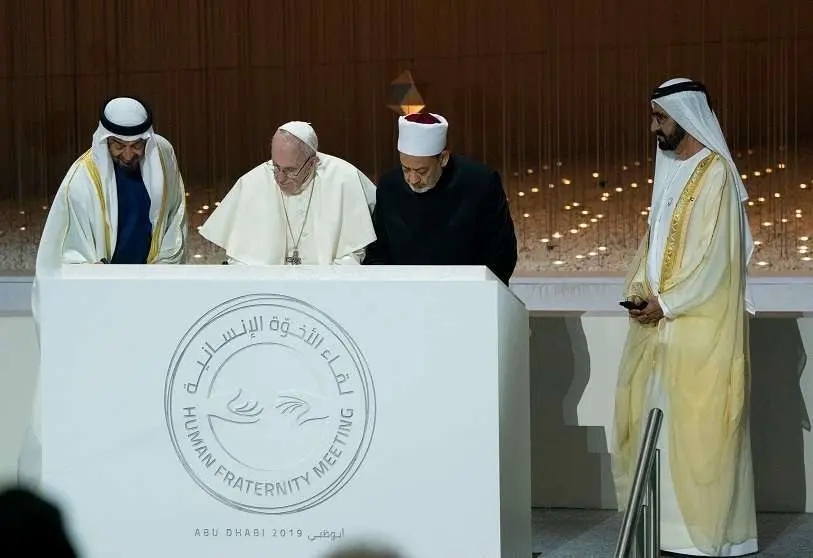
On the occasion of the celebration of the second anniversary of Human Fraternity Day, the Foundation for Islamic Culture and Religious Tolerance (FICRT) has held a series of colloquia to promote interreligious dialogue and fraternity as necessary tools to promote peace and tolerance.
This day was born as a result of the meeting between Pope Francis and the Grand Imam Al Tayeb in Abu Dhabi. In this city, both religious leaders sealed a historic agreement through which they tried to express their intention to promote peace through the coexistence of religions. In addition to becoming a milestone that has succeeded in promoting the union between the Christian and Islamic religions, the document sent a clear and forceful message to the world: union and working together to promote the culture of tolerance, openly rejecting radicalism and violence.

As a way of celebration, the FICRT brought together several experts in the field of culture and religion with the aim of creating a space for dialogue in which these values are highlighted. Thus, the colloquia were led by the director of the Blanquerna Observatory of Media, Religion and Culture of the Ramón Llul University, Dr. Miriam Díez Bosch, the professor of diplomatic studies at the University of London, Dr. Nabil Ayad, the professor of Hebrew studies at the Complutense University of Madrid, Dr. Javier Fernández Vallina, followed by the director of the FICRT, Dr. Javier Fernández Vallina, and the director of the FICRT, Dr. Nabil Ayad, Javier Fernández Vallina followed by the director of the Andalusian Chair for the Dialogue of Religions, Dr. Jaime Flaquer together with the professor of ecclesiastical law, Dr. Juan Ferreiro Galguera, through the mediation of the professor of Arab Studies, Mohammed Dahiri.
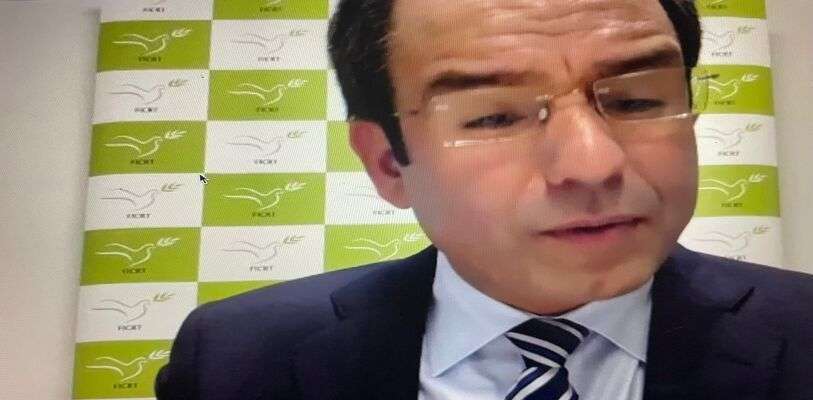
To begin with, the president of the FICRT Foundation's board of trustees, Jumaad Alkaabi pointed out that the importance of this day lies in building an awareness of "having full citizenship and comprehensive justice that does not admit racism or marginalisation".
In the context of the signing of the document, Alkaabi referred to the declaration "issued by the UN to declare it a day of human brotherhood at the initiative of Egypt, the United Arab Emirates and Bahrain".
According to the president of the Foundation, this document managed to emphasise "the valuable contribution of individuals and the promotion of tolerance in order to promote religious dialogue". He also pointed out that the importance of fraternity lies in "the creation of a bond between people, avoiding everything that separates us, such as ideology, politics or racism".
He went on to affirm that "we all seek justice and equality" and that on this path "cultural diversity is a door to integration, acceptance of others and peaceful coexistence", a path that "opens the door to civic-mindedness and cooperation". For this reason, he points out, the achievement of peace "requires a clear effort and cooperation between peoples and states".
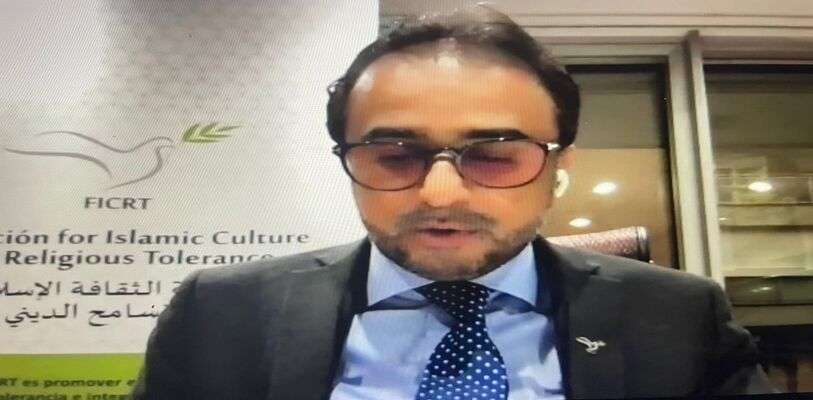
"Fundamentalism only causes constant hatred and bloodshed, this is what history shows. Peace is only achieved through closeness, it will never be achieved through hatred or war. So on this day the FICRT tries to spread a "message of peace, understanding and brotherhood through cooperation between all religions", he says.
He concluded by saying that "the aim of these sessions is to lay the foundations for peaceful coexistence and to help spread the values of peace".
For her part, Dr. Miriam Díez Bosch, declared that "fraternity is a goal in which human beings are on an equal footing and which makes us realise our values". On this path of peace building, fraternity would be "that affection that helps us to be free in order to build a world in which we can be free. It is a condition of possibility in order to move forward".

In this line, he mentioned the phrase declared by Pope Francis that "without fraternity we collapse as humanity" to point out that "coexistence is not possible if we continue to segregate. Fraternity is one of the universal values that should be the basis of our peoples". He also mentioned that in an increasingly individualistic world in which technology has become one of the main ways of communicating, "human values can be suppressed", something that can be remedied through fraternity.
In this "inner struggle against our selfishness, religions do not invite violence. This is the result of the deviation of religious teachings by and for political interests", he explains. He therefore calls for terrorist acts to "stop using the name of God".
Finally, he stressed that "in this diplomacy of religions, respect and religious tolerance are essential. Fraternity unites human rights".
Afterwards, Dr. Nabil Ayad related the concepts of diplomacy and fraternity, and gave as an example "the massive demonstrations that took place throughout the world in reaction to the assassination of George Floyd".
For Ayad, "the COVID-19 pandemic has intensified fraternity". And therefore "the health of nations is fundamental to relationship building and wealth creation".
The doctor argues that "religions teach us to love the other" and therefore we should avoid defending only those who "believe in the same God as us, thus avoiding parochialism".
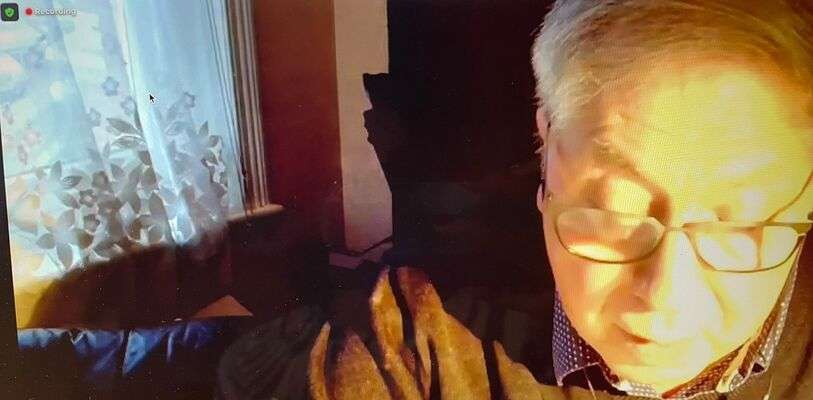
He spoke of "exploring how the world can be sustained through the defence of spiritual humanity, a value and way of life that is being lost in an increasingly divided world".
Dr. Francisco Javier Fernández Vallina then mentioned that "fraternity is a humanist duty that must strive for a stable and just peace over conflict. At a time when Europe is resounding with the drums of war, we evoke active diplomacy through equality and similarity with brotherhood".
Vallina appeals to "act from a civil ethic that realises justice out of love for all, but that these will be insufficient to achieve their goal if politicians do not carry it out". For this reason, a project needs to be drawn up "between religion and democracy".
For his part, Dr. Jaime Flaquer stressed the importance of the "relationship with others" in the creation of "fraternity and sorority". He mentions that "all religion is linked to the other and considers the other not as a stranger but as an equal. In religion, something of the self is shared, they are spaces of tolerance and non-violence in which one tries to make the other an equal, even a self".
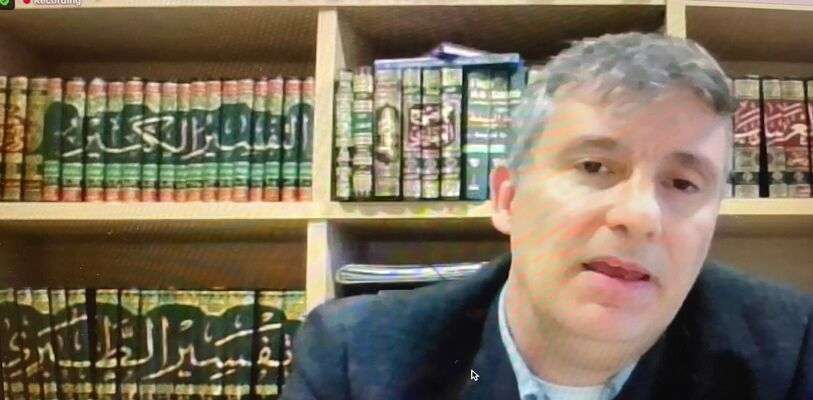
"We are thanks to others, we cannot be one without the other. Each religion is a creator of fraternity and ties", which is why it is "necessary to find new paradigms called to dive into religious traditions to collaborate in the construction of a universal fraternity" in which "we collaborate in peace and not in the creation of conflicts", he stressed.
To conclude the colloquium, Dr. Juan Ferreiro mentioned the importance of "the role played by states". He also mentioned Christianity as "a religion that carries fraternity in its genes through the motto "love thy neighbour as thyself".

Ferreiro stressed the importance of celebrating these days in order to "raise public awareness of this", since "a profound knowledge of religions allows us to break down the barriers that separate us. Religious equality gives everyone their due", and in this Spain has implemented "the principle of cooperation through a series of agreements with religions".
He concluded by stating that "if the State can cooperate with the confessions to create laws, it can also improve inter-religious dialogue, advance and strengthen the fraternity that is so necessary, and even more so in these days".








